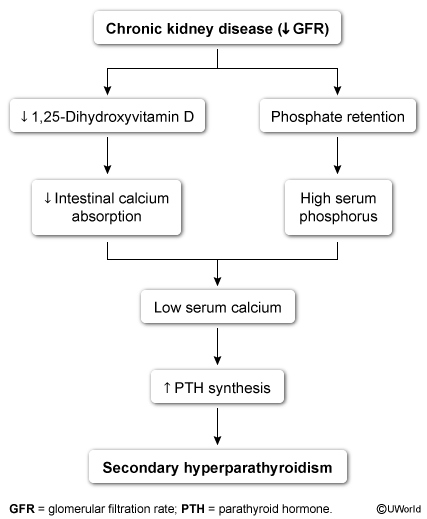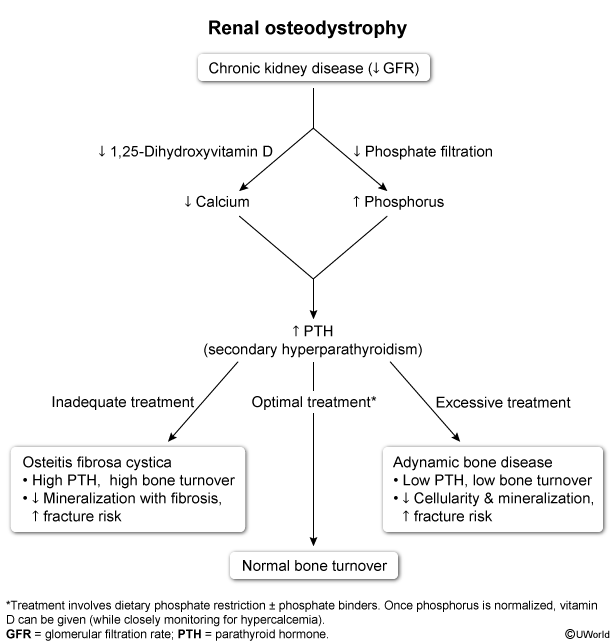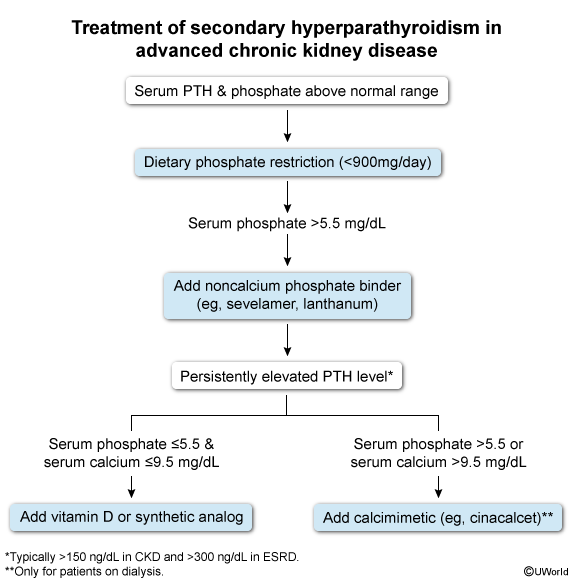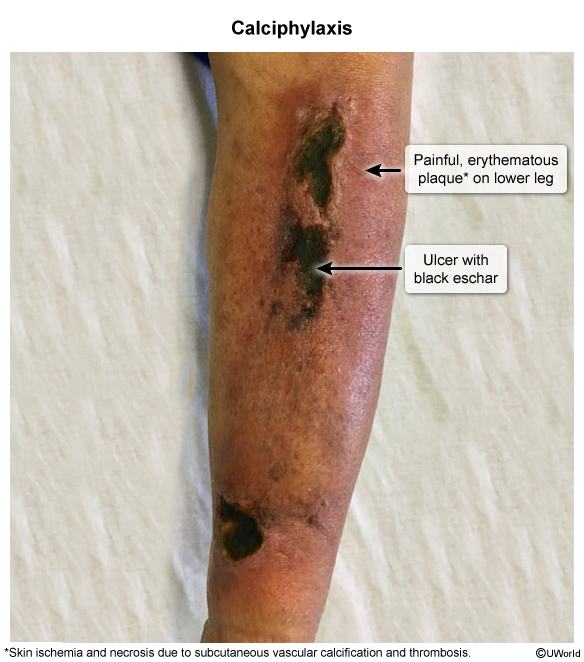Chronic Kidney Disease: Mineral And Bone Disorders
Article Sections
Introduction
Chronic kidney disease (CKD) predisposes to abnormal bone and mineral metabolism known as CKD-mineral and bone disorder (CKD-MBD). As renal function declines, there is a disruption in homeostasis of calcium, phosphorus, parathyroid hormone (PTH), vitamin D, and fibroblast growth factor 23 (FGF23). This disrupts serum levels of calcium and phosphorus, often with detrimental effects, including states of abnormal bone turnover (ie, renal osteodystrophy) that can manifest as osteitis fibrosa cystica and adynamic bone disease. CKD-MBD not only affects bone health but also contributes to the development of vascular calcification (ie, calcium-phosphate crystal deposition), the leading cause of mortality in CKD (eg, from coronary artery disease).
Pathophysiology
Mineral imbalance: High phosphate, low calcium, low vitamin D
Continue Learning with UWorld
Get the full Chronic Kidney Disease: Mineral And Bone Disorders article plus rich visuals, real-world cases, and in-depth insights from medical experts, all available through the UWorld Medical Library.
Unlock Full AccessFigures



Images
